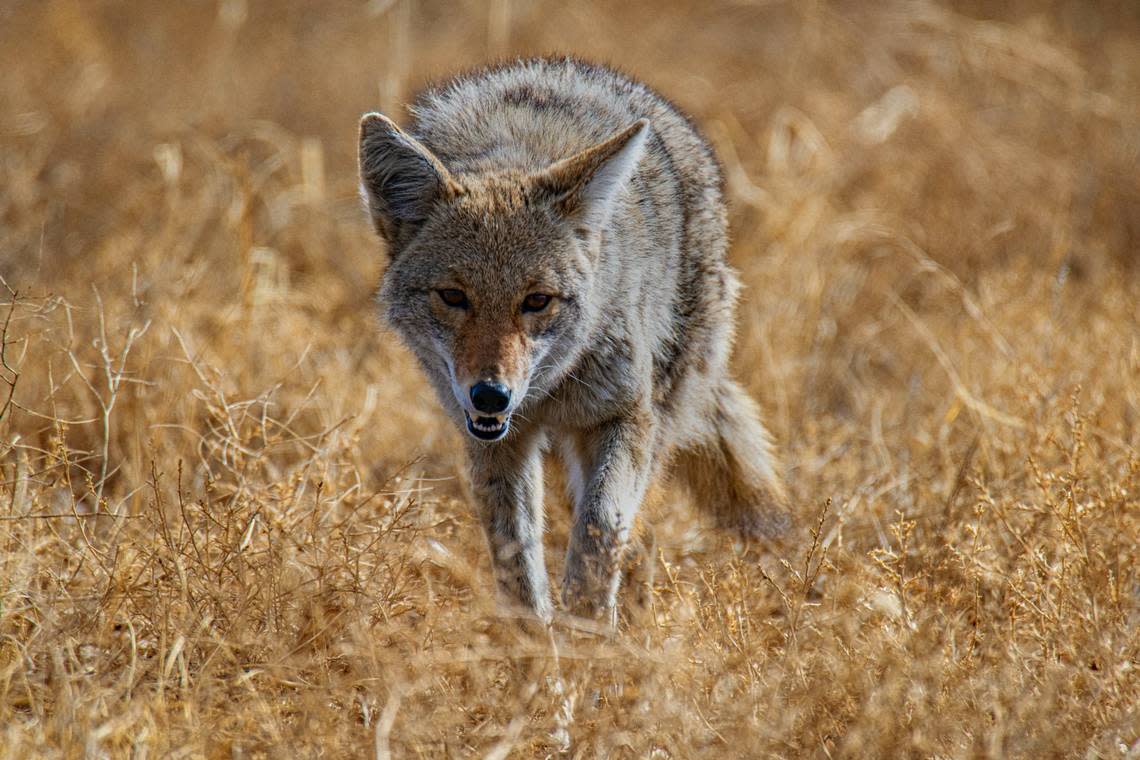Hiker strangles rabid coyote to death after it bites him in woods, Rhode Island cops say

A 58-year-old man was hiking in the woods in Rhode Island when he was attacked by a rabid coyote, news outlets reported.
He had to strangle the animal to stop it, Johnston Police Chief Mark A. Vieira told the Warwick Beacon.
Now officials have confirmed the same coyote was responsible for two recent attacks, the State of Rhode Island Department of Environmental Management said in a Feb. 12 news release.
The coyote first attacked a person who was walking their dog Feb. 8 in Scituate, officials and The Boston Globe reported.
Then the next day the rabid animal appeared as a man was hiking in Johnston, the news outlet reported.
It bit the man on his leg, police told The Associated Press.
He had to “subdue the coyote by pinning it down by its neck, subsequently suffocating the coyote,” Vieira told the Warwick Beacon.
Health officials said they tested the animal’s body for rabies, and it came back positive for the virus.
Now officials are warning anyone in the Scituate and Johnston areas to call the Rhode Island Department of Health’s Center for Acute Infectious Disease Epidemiology if they had any contact with the rabid coyote.
If a pet was in contact with it, owners should contact their veterinarian, officials said.
The Johnston Police Department did not immediately respond to McClatchy News’ request for more information Feb. 13.
What are the signs of a rabid animal?
Rabies is a viral infection that can be transmitted to animals and humans, according to the National Park Service.
When an animal becomes infected with rabies, they can lose their fear of humans and appear sleepy, confused or aggressive, officials said.
An animal may also drool more, have trouble moving, look paralyzed or bite at the air, the Centers for Disease Control and Prevention said.
Some animals don’t show any signs of the virus, the CDC said.
How to prevent getting rabies
To avoid getting rabies, people should keep a distance from wildlife and report sick animals to rangers or wildlife officials, the NPS said. This includes not touching wildlife.
Small openings on homes, cabins and tents should also be blocked off so wildlife can’t get through, officials said.
Officials also advise teaching children about the dangers of rabies.
If someone is bitten by an animal, immediate medical attention should be sought.
Animals are acting strange at an Arizona national park. Now officials have theory why
‘Aggressive’ bobcat attacks children, prompting public warning, Georgia officials say
Man races to save dog from coyote attack, video shows. ‘I’d do anything to protect her’


